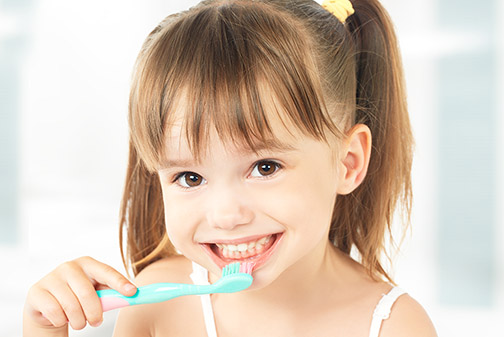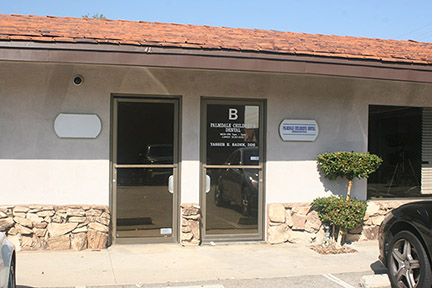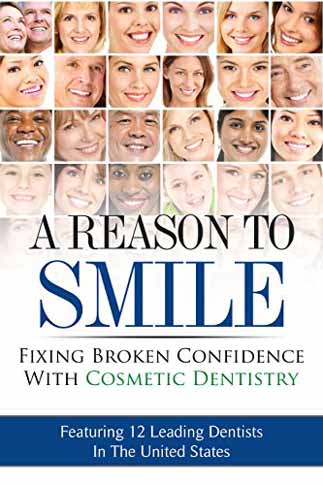Proper Oral Hygiene and Brushing after Each Mean
Posted by Dr. Yasser Sadek on Jun 6 2018, 10:56 AM

It’s important for parents to know how to properly manage their children’s oral hygiene, especially because parents are responsible for taking care of their teeth until the children can physically do so themselves. The fine motor skills needed to properly brush teeth don’t fully develop until the age of 7 or 8, which means that parents are fully responsible for the care of their children’s teeth during those years. Also during those years, parents have to train their children on proper brushing techniques so children can brush their own teeth adequately from the age of 8.
Through talking with parents over the years, I’ve noticed two common themes among children with chronic dental problems: (1) These parents are not consistent about brushing their children’s teeth every day, and (2) These parents let children under age 8 brush their own teeth. Since children thrive on consistency, when parents aren’t brushing their children’s teeth every day and the oral hygiene regimen is inconsistent, the children are often non-cooperative. And when children younger than 8 years of age are in charge of brushing their own teeth, they just haven’t yet developed the fine motor skills necessary for proper manipulation of the toothbrush, so they don’t do a good job and end up with tooth decay.
Regardless of age, bacteria develop in the mouth to help break down food that humans consume. Within 30 minutes of eating, food particles left in and around our teeth begin to break down and become acidic. This acid is what starts breaking down the enamel of the teeth, causing teeth to decay and eventually causing pain if not treated properly. This is why it is so important to brush your teeth after every meal.
The American Dental Association (ADA) suggests that teeth be brushed at least twice per day. Based on science, we know that when food is consumed and surrounds the teeth the bacteria in the mouth break down the film of food and make it chemically acidic. Acid, if left for 24 hours in the same spot, breaks down and strips the enamel of calcium. Removing the acidic film once every 12 hours eliminates or at least reduces the possibility of that happening.
However, I recommend to my young patient’s parents to brush their children’s teeth three times a day because children are constantly eating or snacking. My own daughter finishes dinner and not 10 minutes later asks for a snack. The fact that children graze all day makes their mouth more acidic than adults, which increases the chances for tooth decay. Children also have another factor working against them, with pediatric teeth being structurally weaker than adult teeth — they are made to be broken down by the adult teeth that are erupting under them. This makes the baby teeth more susceptible to decay, which increases the necessity for more frequent brushing.



